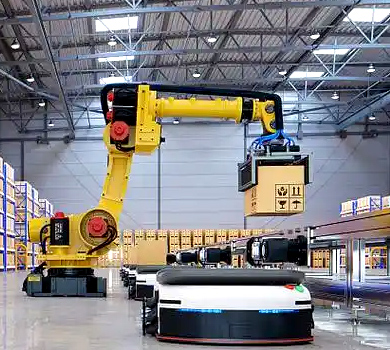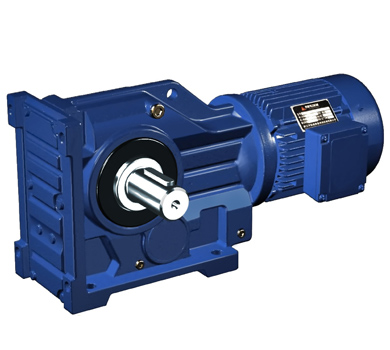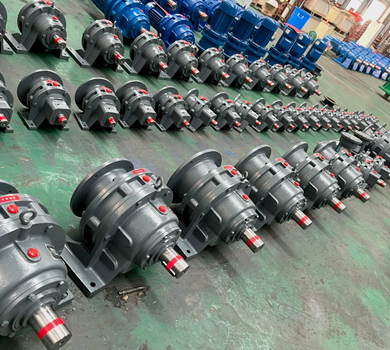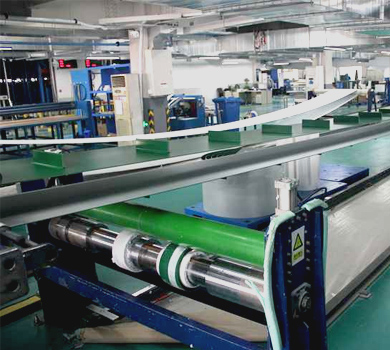The photovoltaic (PV) equipment industry, particularly in the area of solar panel palletizing robot gear reduction platforms, has become a key segment within industrial automation. These systems are widely used in manufacturing lines to stack solar panels with high precision and reliability. As the industry grows and demands for automation increase, the requirements for transmission components have become more stringent. Gear units must now provide high torque density, precise motion control, and durability under harsh environmental and mechanical conditions.
However, current solutions face several challenges. Many existing gearboxes struggle to maintain consistent performance in high-load and high-temperature environments. Additionally, the demand for compact and modular designs is rising, which is difficult to meet with conventional solutions. The frequency of maintenance and the overall lifecycle cost remain major concerns for equipment manufacturers and system integrators.
2. Key Role and Technical Requirements of Gear Units in the Industry
In solar panel palletizing robots, the gear unit plays a crucial role in ensuring smooth and accurate motion. The system must handle heavy loads while maintaining high precision and fast response. Key technical requirements include:
- High Torque Density: The gear unit must provide sufficient torque in a compact form factor to support robotic arms with high load capacity.
- High Transmission Accuracy: The positioning precision must be within tight tolerances to avoid misalignment during stacking operations.
- Fast Dynamic Response: The gear unit should enable rapid acceleration and deceleration for high-speed palletizing.
- Compatibility with Heavy-Duty Operations: The design must be robust and suitable for long-term continuous operation under high stress.
- High Reliability and Long Lifespan: Minimal failure rates and long service life are essential to reduce downtime and maintenance costs.
- Environmental Adaptability: Operation under elevated temperatures and in clean room environments is increasingly required.
3. Waimica's Tower Gear Unit Solution
Waimica’s tower gear units (industrial tower transmission) are engineered to meet the exacting demands of solar panel palletizing robot applications. The product line features a number of design and performance enhancements that directly address the industry’s key challenges:
- Structural Design Advantages: The tower gear unit is designed with a compact footprint and modular architecture, enabling flexible integration into robotic systems. It supports multiple mounting configurations to accommodate diverse mechanical setups.
- Performance Specifications: With torque ranges up to 2,000 Nm, backlash as low as < 1 arcmin, and transmission efficiency of up to 96%, the unit ensures precise and powerful operation. It is available with a variety of input flange types, including ISO and NEMA standards, for universal compatibility.
- Special Operating Condition Support: The gear unit is rated for operation in high-temperature environments (up to 120°C) and is suitable for use in clean rooms with IP65 to IP67 sealing options. This ensures long-term performance in demanding industrial environments.
| Parameter | Waimica | Other Brand |
|---|---|---|
| Max. Torque (Nm) | 2,000 | 1,800 |
| Backlash | < 1 arcmin | < 2 arcmin |
| Efficiency | 96% | 94% |
| Operating Temperature Range (°C) | -30 to 120 | -20 to 100 |
| IP Rating | IP65/IP67 | IP65 |
| Mounting Configurations | Multiple (flange, foot, shaft) | Flange only |
4. Real-World Application and Customer Feedback
A leading solar equipment manufacturer in China requested a gear unit solution for a new generation of palletizing robots used in high-speed solar panel production lines. The customer’s requirements included high torque capacity, low backlash, and long service life in elevated temperature environments.
Waimica’s technical team conducted a detailed on-site assessment to understand the mechanical loads, duty cycles, and environmental conditions. Based on this data, they selected a high-performance tower gear unit from the Waimica product portfolio and customized the design for optimal integration with the customer’s existing robotic platform.
After implementation, the customer reported significant improvements:
- 30% increase in system stability due to improved gear backlash and stiffness.
- 25% reduction in maintenance frequency thanks to enhanced lubrication systems and sealing technologies.
- Service life extended by 20% compared to the previous solution.
| Performance Indicator | Before Waimica | After Waimica |
|---|---|---|
| System Stability | 75% | 95% |
| Maintenance Frequency (per month) | 4 | 3 |
| Service Life (months) | 24 | 30 |
5. Conclusion and Waimica’s Value Proposition
Waimica’s tower gear units demonstrate a strong combination of performance, reliability, and cost-effectiveness tailored for the photovoltaic equipment industry. With a proven track record in delivering customized solutions, Waimica is positioned as a viable alternative to traditional foreign brands. The company’s advanced engineering capabilities, robust manufacturing processes, and fast delivery times ensure it can support clients in both domestic and international markets.
As the photovoltaic industry continues to embrace automation, Waimica remains committed to providing cutting-edge transmission technologies that enhance productivity, reduce operational costs, and support sustainable growth. Waimica is not just a supplier but a strategic partner for long-term industrial development.







